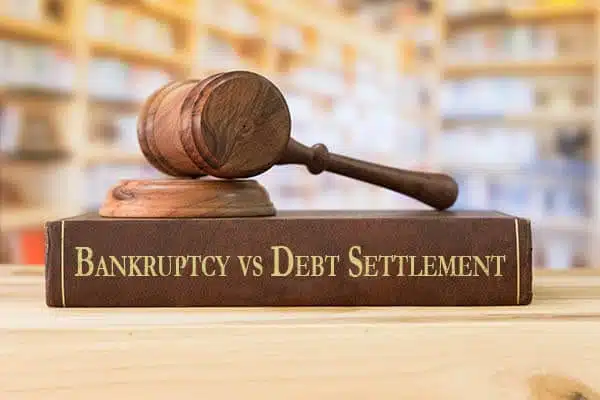In today’s fast-paced society, financial struggles can arise unexpectedly, leaving individuals overwhelmed with debt. Dealing with overwhelming debt can be a daunting and stressful experience, leading many individuals and businesses to consider debt settlement or bankruptcy as potential solutions. Both mechanisms offer relief from overwhelming financial liabilities and can be utilized to regain control of one’s financial situation. However, due to the legal complexities involved, seeking professional legal consultation is highly recommended.
This article will explore a few crucial reasons why individuals in debt should consider obtaining legal advice before pursuing debt settlement or bankruptcy. This will help you answer the question as to whether you need legal consultation to deal with your case.
Expert Knowledge and Guidance:
Navigating the intricacies of debt settlement and bankruptcy laws necessitates a deep understanding of legal processes and policies. This is not something that can be learned overnight, hence why legal experts rely on several years of training and practical experience to build their expertise. Since these matters can be convoluted and overwhelming, seeking expert advice from a lawyer ensures that you make informed decisions.
Legal professionals possess extensive knowledge and experience, allowing them to analyze your financial situation comprehensively and devise a strategy tailored to your specific needs. Relying solely on your own understanding may lead to costly mistakes or missed opportunities for debt relief.
Assessing the Financial Feasibility:
A crucial aspect of debt settlement and bankruptcy is assessing the financial feasibility of these options in your specific circumstances. An experienced attorney will meticulously examine your income, assets, and liabilities to determine whether debt settlement or bankruptcy is the most suitable route. They will help you understand the potential consequences and benefits associated with each option, allowing you to make an informed decision that reflects your financial goals.
Protecting Assets:
Debt settlement and bankruptcy have distinct implications regarding asset protection. In some cases, filing for bankruptcy may result in the liquidation of certain assets. However, exemptions exist that can safeguard specific assets depending on the type of bankruptcy filed. This is a vital piece of information that may be missed unless you have the appropriate knowledge behind you. A skilled attorney will guide you through the exemptions relevant to your situation and help protect your assets to the fullest extent possible. With their guidance, you can retain important possessions while still achieving debt relief.
Avoiding Pitfalls and Scams:
The world of debt settlement is not without its risks. Many illegitimate companies and scammers prey on vulnerable individuals drowning in debt, promising quick fixes and significant reductions without proper follow-through. By seeking legal consultation, you can avoid falling victim to these scams. This process is already overwhelming without the additional unnecessary risks, which is why you must prevent this from happening. A reputable attorney can inform you about state and federal laws governing debt settlement, protecting you from fraudulent schemes, and ensuring your rights are upheld.
Negotiating with Creditors:
Undergoing negotiations with creditors is an integral part of debt settlement and it requires a degree of communication most people don’t have. Attempting to negotiate personally can be challenging, as creditors may be unresponsive or unwilling to compromise. Engaging a lawyer familiar with the intricacies of debt settlement allows for effective negotiation on your behalf. They can leverage their expertise to secure favorable terms, such as reduced interest rates or alternative payment plans, ultimately facilitating a more successful debt settlement outcome.
Proper Legal Documentation:
Both debt settlement and bankruptcy procedures rely heavily on drafting and handling legal documentation. Minor errors or omissions in these documents can have severe consequences and may even result in the rejection of a proposed debt resolution or bankruptcy application. The legal mavens behind shoresh-law.co.il suggest that engaging legal professionals ensures that all necessary paperwork is meticulously prepared, reviewed, and submitted in strict accordance with the law.
Lawyers can also assist in comprehending complex legal jargon, clarifying terms and conditions, and explaining the implications of various clauses in these agreements, saving individuals from potential misinterpretations or misunderstandings.
Understanding Long-term Consequences:
Decisions made during the process of debt settlement or bankruptcy can have long-term implications on your financial future. Choosing the wrong approach or mishandling negotiations can lead to unforeseen consequences, such as tax liabilities or lingering debts. Legal professionals can provide a comprehensive analysis of the potential long-term ramifications associated with each option, aiding you in making confident decisions that align with your financial goals.
Debt settlement and bankruptcy offer viable solutions for individuals burdened by overwhelming debts. However, given the complex legal considerations involved, seeking professional legal consultation is highly advisable. Lawyers provide expert knowledge, assess the financial feasibility, protect assets, prevent scams, negotiate with creditors, and ensure a complete understanding of the long-term consequences. By involving legal professionals in the decision-making process, individuals can regain control of their financial situation while minimizing the risks associated with debt settlement and bankruptcy.
Lucas Noah, armed with a Bachelor’s degree in Information & Technology, stands as a prominent figure in the realm of tech journalism. Currently holding the position of Senior Admin, Lucas contributes his expertise to two esteemed companies: OceanaExpress LLC and CreativeOutrank LLC. His... Read more
